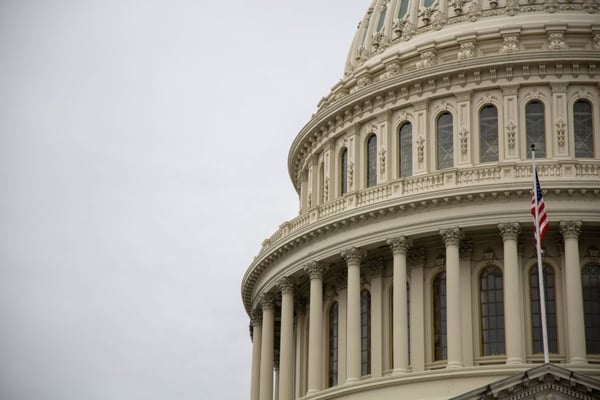Understand how to effectively write grant proposals for your nonprofit organization.
A grant is a type of funding that's usually provided by the government and can be obtained by individuals, corporations, or nonprofits. Unlike other types of funding, recipients of grants don't need to repay them, which is why they can be highly beneficial for any business that can obtain them. For nonprofit organizations, grants are very important since these organizations are unable to earn revenues in the same way as standard businesses.
If you have created a nonprofit organization, among the only ways to start projects or grow your organization is by receiving funding from investors or grants. However, the competition for grant money can be intense, which is why it's essential that you understand how to effectively write grant proposals. The main goal of creating a grant proposal is to show the foundation or government agency how your nonprofit will benefit the community around you. In 2014, around $70 billion in grant money was provided by corporations and foundations.

If you're running a nonprofit, funding may be necessary for any number of reasons. Whether you require some money to cover operational costs or are looking to move into a new building, grant money can provide you with the funding that you require to accomplish these goals. Because of how nonprofits seek grant money every year, it's important that the grant proposal you write is effective.
This article offers nine tips and guidelines that can help you write successful grant proposals for your nonprofit.

While this particular tip doesn't directly involve how to write a grant proposal, it should allow you to better understand when it's time to start working on these proposals. To increase your chances of receiving grant money, it's highly recommended that you start small and early, which is particularly important if you've never applied for a grant before.
While some nonprofits attempt to go for the largest grants that will allow them to receive a substantial sum of money, this strategy isn't feasible if this is the first time you're applying for a grant. Instead, you should focus on securing several small grants at the beginning.
Since grant funding is more difficult to obtain now than it's ever been before, it's important that you start applying for grants early in your career or soon after you've started the nonprofit. The programs and corporations that offer grant money usually favor individuals and businesses that haven't had a chance to gain a foothold in the industry. You will also be competing against a smaller pool of candidates since the majority of grant applicants have already become established in the industry and are applying for different types of grants.

If you want to heighten the possibility that your proposal is accepted, you should consider targeting a specific project for your proposal. Most grants are awarded to a singular cause as opposed to general support. For instance, if your nonprofit organization is centered around improving the environment, you could seek funding to develop a program to educate people about the effects of climate change.
Having a clear need for the grant money is better than seeking funding for operational costs. It also increases the likelihood that you will be awarded grant money.

The individuals who are in charge of reading grant proposals likely read thousands upon thousands of these proposals while only having the ability to accept a small percentage of them. As such, you can likely imagine that these individuals will skip over the boring and bland proposals in order to save some time and get to the proposals that are more likely to be considered.
This is why it's important that you tell a good story with your grant proposal, which should help you stand out among the rest. Whether the proposal inspires the reader or tugs at the emotions, your proposal has a higher chance of being considered if you tell a story that captivates the reader. However, you should also avoid making it too long.

Many nonprofits make the mistake of focusing on problems that are occurring in the world around them while only offering vague solutions on how their nonprofit can solve these problems. Instead, it's important that you focus primarily on solutions and how these solutions can help solve the problems. Otherwise, the proposal has a more negative tone and vibe than it probably should.

When writing a proposal, it's essential that you double check the budget to make sure that it matches the amount of grant money you're requesting. A large number of proposals are actually submitted with incorrect math, which typically causes an automatic rejection.
If you ask for an amount of grant funding that's far larger than the amount of money that's needed to fulfill your goals, this indicates that you don't manage money well, which will lead to the application being rejected immediately. Run your calculations at least twice to be certain that they are correct.

Each grant provider has different requirements for what they want out of a grant proposal, which means that you should never use a proposal that you've written as a template for others that you send in. There are some foundations that are very picky with what they require, which is why it's first important that you make sure you meet all of the requirements for grant funding.
Once you're certain that you qualify for the grant, you then need to focus on what the foundation wants from a grant proposal. Pay attention for their requirements for page length, typeface, page margins, and other specifications. Even though these specifications likely seem picky to you, not following just one of them can cause your application to be immediately rejected. If your application ends up being rejected, you want it to be for legitimate reasons as opposed to logistics errors on your part.

Among the most important factors of a successful grant proposal is performing an extensive amount of research before you write the proposal. When researching the foundation that you want to request grant money from, it's important that their interests align with yours, which will be key towards having your grant proposal accepted. You need to be confident that the organization would support your proposal before you even send it, which is why it's essential that you do your research.
Once you begin to write your proposal, it's recommended that you tailor it to the organization that you're sending to. The proposal that you write should seem like it's being written specifically for the grant provider. While doing your research doesn't guarantee that your proposal is accepted, it increases the likelihood that it's at least considered.

Grant writing isn't something that you can do in a single day, which is why it's important that you give yourself enough time to write the application. To be certain that your grant proposal is well-written and well-researched, it's recommended that you take at least one month to write it. Numerous edits and drafts are typically essential if you want to write an effective proposal.
If you have any statistics that indicate how you've helped the community around you so far, these should be front and center within your grant proposal.

The funders who are going to be reading your proposals are people, which is why it's recommended that you contact these individuals to build a relationship with them before sending in the proposal. Many nonprofits rely strictly on sending an email. However, picking up a phone and calling them can be much more effective. These individuals can help you send in a better and more effective proposal, which is why you'll benefit from talking with the funders and connecting with them.

Grants are highly popular among the nonprofit community, which means that your attempt to receive grant funding will be met with heavy competition. If you want to increase the chances that your grant proposal is accepted, it's very important that the proposal is written well.
As long as you perform extensive research, write with passion, and focus on how your nonprofit can help the community, there's a good chance that one of your proposals will eventually be accepted. While it's always possible to seek a nonprofit loan for your organization, grants are beneficial because they come with no strings attached. When you receive grant money, you don't need to worry about paying it back.
Here at University Lab Partners, we can provide you with further assistance that should allow your nonprofit to grow and accomplish its goals. We offer a wet-lab incubator that offers both lab space and office space, the latter of which can be highly useful for nonprofits. This space can be rented for a fraction of what it costs to purchase a commercial property for your company, which is why you should consider applying for space.
If you want to learn more about how our services can help you, contact University Lab Partners today!
Revised 11/16/2020
Download The Ultimate Guide to Wet Lab Incubators in Southern California, a handbook to assist life science start-ups through the entire decision-making process to find wet lab space.
Download Now